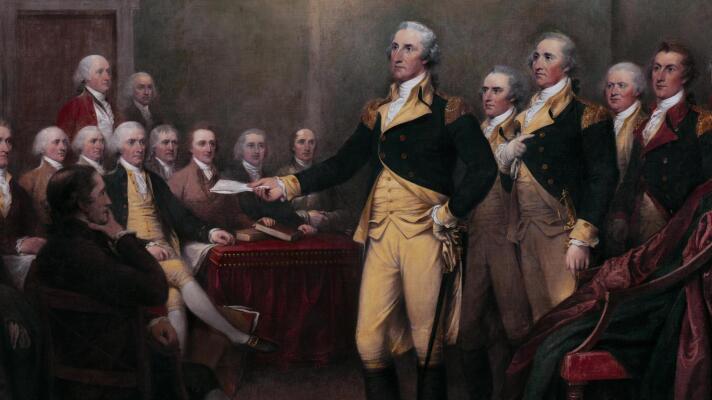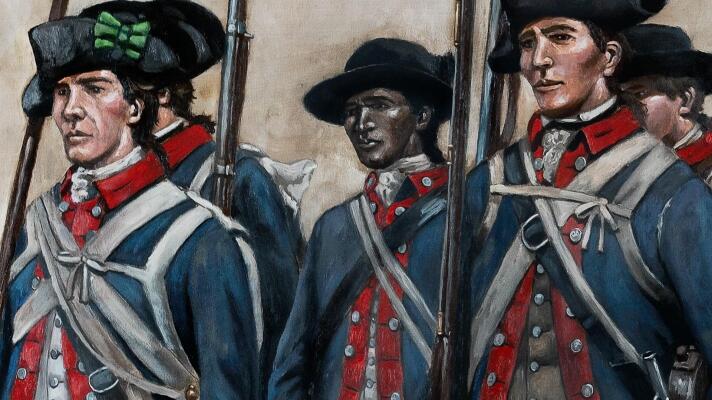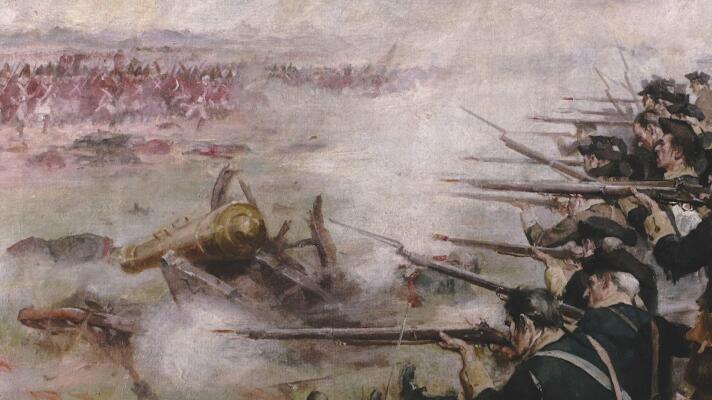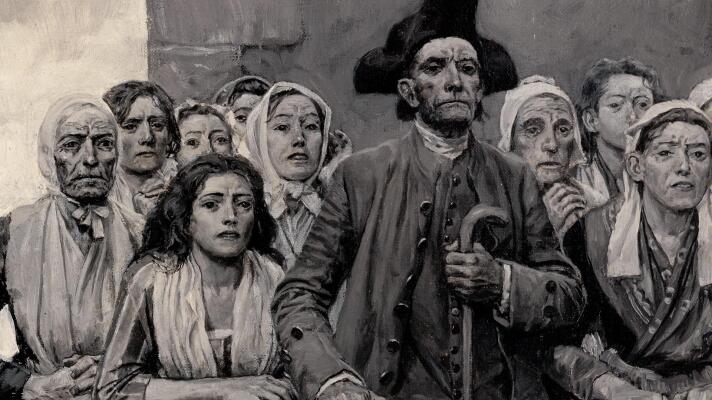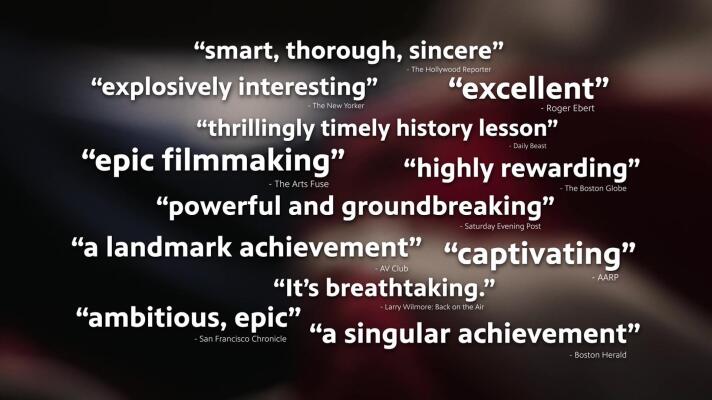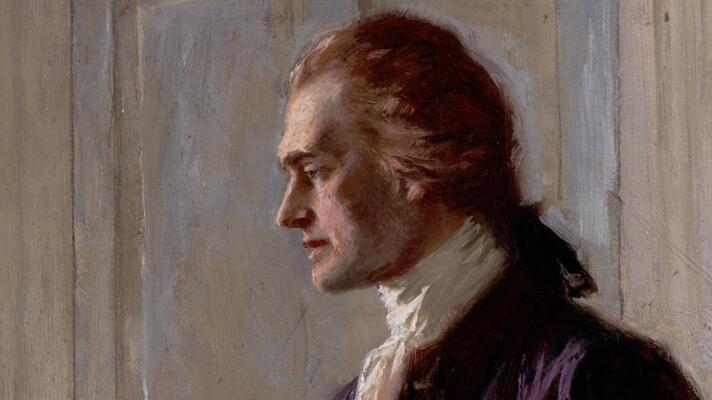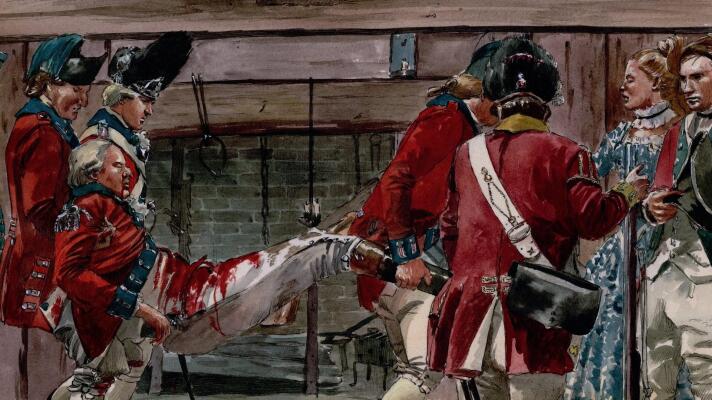Latest Episodes
Victory at Yorktown secures independence. Americans aspire for a more perfect union.
Episode:
S1
E6
|
2:10:41
The war drags on and moves to new theaters: at sea, in Indian Country, and in the South.
Episode:
S1
E5
|
1:53:53
Philadelphia falls, but the American victory at Saratoga allows France to enter the war.
Episode:
S1
E4
|
1:55:38
Washington abandons New York City and flees across New Jersey, before attacking Trenton.
Episode:
S1
E3
|
1:54:35
Washington takes command of the Continental Army. Congress declares American independence.
Episode:
S1
E2
|
2:04:18
Political protest escalates into violence. War gives thirteen colonies a common cause.
Episode:
S1
E1
|
1:56:09
Extras
"Explosively Interesting" - critics agree The American Revolution must-watch TV.
Preview:
0:30
George Washington takes action when an unsigned manifesto starts circulating among his officers.
Clip:
S1
E6
|
3:01
The Continental Army was made up of ordinary Americans, like Joseph Plumb Martin.
Clip:
S1
E6
|
2:09
Historian Stephen Conway. The American Revolution premieres November 16.
Preview:
0:30
Historian Christopher Brown. The American Revolution premieres November 16.
Preview:
0:30
The Six Nations of the Haudenosaunee choose opposing sides at the Battle of Oriskany.
Clip:
S1
E4
|
8:07
Most revolutionaries were Protestants, but there were also Catholics, Jews, and Muslims.
Clip:
S1
E4
|
2:05
General Horatio Gates' force clashes with the British, beginning the Battle of Saratoga.
Clip:
S1
E4
|
6:18
The British seize Philadelphia, but Washington plans to retake the city at the Battle of Germantown.
Clip:
S1
E4
|
6:29
Thousands poured down the Great Wagon Road, eager to start a new life in North America’s interior.
Clip:
S1
E1
|
2:56

WQLN PBS Passport is a member benefit that provides you with extended access to an on-demand library of quality public television programming!



